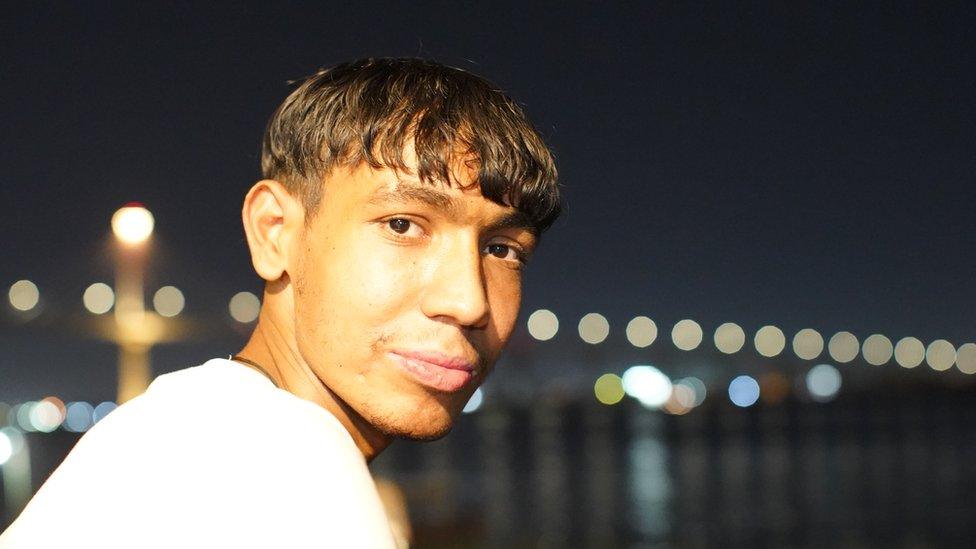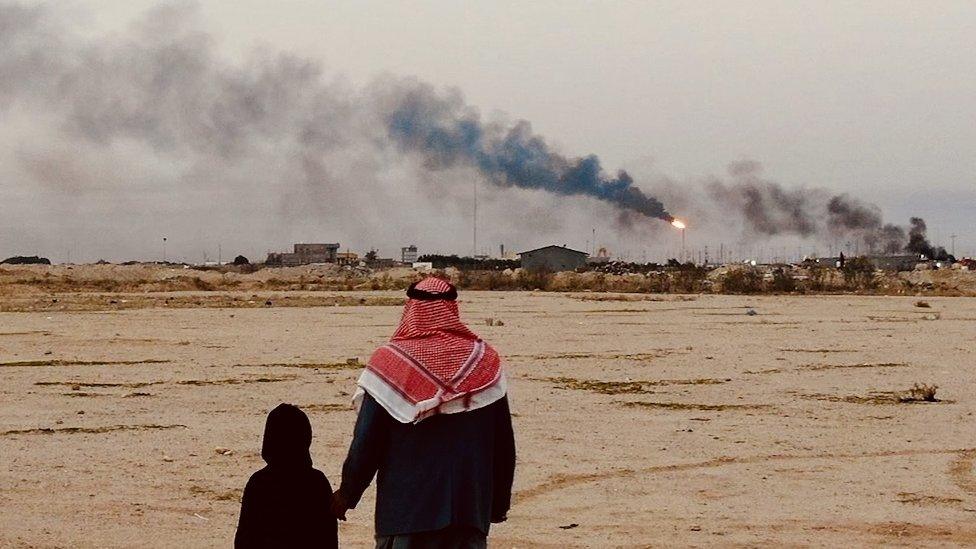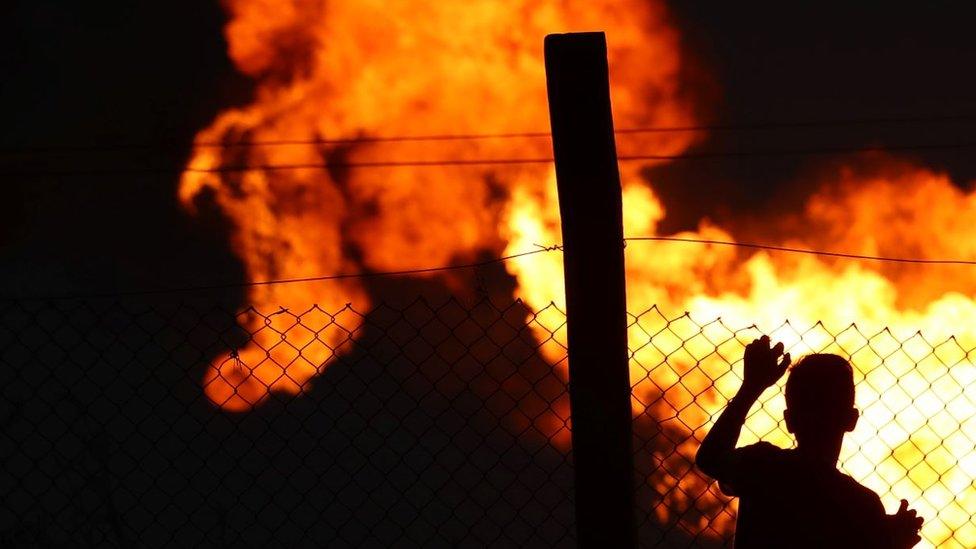Father challenges BP at meeting after son's death
- Published

Ali Hussein Julood, who died of cancer - likely due to gas flaring from BP's oil fields in Iraq, a doctor says
A father whose son died of cancer - which his doctor said was likely caused by gas-flaring from BP's oil fields in Iraq - told the company that "cancer is so common it's like the flu" at its annual meeting.
Ali Hussein Julood documented his life for a BBC investigation which found high levels of cancer-linked pollutants in a BP oil field.
He died on 21 April of leukaemia.
BP said it offered condolences to the family.
The father, Hussein Julood, told the BBC that his son's life was sacrificed for the company's record profits.
Ali's doctor said that his leukaemia was likely caused by high levels of pollution in the local area.
Iraqi communities living close to oil fields, where gas is openly burned, are at elevated risk of leukaemia, a BBC News Arabic investigation revealed.
Gas flaring is the "wasteful" burning of gas released in oil drilling, which produces cancer-linked pollutants.
In Rumaila, flaring takes place less than 2000m from where he lived, violating Iraqi laws that state it should be at least 10km from people's homes.
BP and Eni are major oil companies the BBC identified as working on some of the country's biggest oil exploration areas in south-eastern Iraq.
Speaking at BP's annual general meeting via webcam and an interpreter from southern Iraq, Mr Julood spoke in place of his son - who had intended to ask a question himself, but died before he was able to do so.
Mr Julood described his situation to the BP board.
"From my door, you can see the black smoke from gas flaring 24 hours a day, and you can smell the toxic chemicals from these flares," he said.
"Sometimes it's so bad breathing is difficult, and oil rains from the sky...cancer is so common here it's like the flu."
Ali had been suffering from the disease since he was 15.
People living in some of the world's biggest oil fields in Basra, south-east Iraq - Rumaila, West Qurna, Zubair and Nahran Omar - have long suspected that childhood leukaemia is on the increase, and that flaring is behind it.
An official document leaked to the BBC investigation found there was a 20% increase in cancer in this region over the past five years, as gas flaring has increased.
Mr Julood explained that Ali's greatest wish was that the gas flaring and pollution would stop.
"He loved nature - his favourite place in the world was his garden. And he wished that children could enjoy playing and breathing freely outside," he said.
The oil giant said at its annual meeting that it is continuing to reduce flaring at Rumaila.
The BBC also found millions of tonnes of undeclared emissions from gas flaring at oil fields where BP, Eni, ExxonMobil, Chevron and Shell work.
On Thursday, some of the UK's biggest pension funds voted against reappointing BP's chairman over a decision to weaken its climate plans, but the majority of shareholders backed Helge Lund.
It comes after the energy giant cut back its target to reduce emissions by the end of the decade.
As well as the dissenting votes there were also disruptions during the annual meeting from climate protestors.
BP said it valued "constructive challenge and engagement".
The five pension funds - Nest, the Universities Pension Scheme, LGPS Central, Brunel Pension Partnership and Border to Coast - are concerned that the new targets put BP financially at risk, as the company's fossil fuel projects are likely to lose value as the world moves towards net zero emissions.
Nest, one of the five pension funds that voted against the reappointment of Mr Lund, told the BBC that there were concerns over BP's actions on reducing gas flaring, after seeing the BBC documentary Under Poisoned Skies.
The five pension funds told the BBC that their vote was a protest against the company's actions.
The pension funds have £440m invested in BP, which represents less than 1% of the company's total shares. But they manage the pensions of more than a third of the UK's workers so are an influential voice.
Eni said it "strongly rejects any allegation that its own activities are endangering the health of the Iraqi people".

Under Poisoned Skies
The deadly impact of the oil giants' toxic air pollution on children and the planet is revealed in this BBC News Arabic investigation from the front line of climate change in Iraq.
The documentary is available to watch now on BBC iPlayer (UK only) and internationally on the BBC website.

Related topics
- Published30 September 2022

- Published29 September 2022
